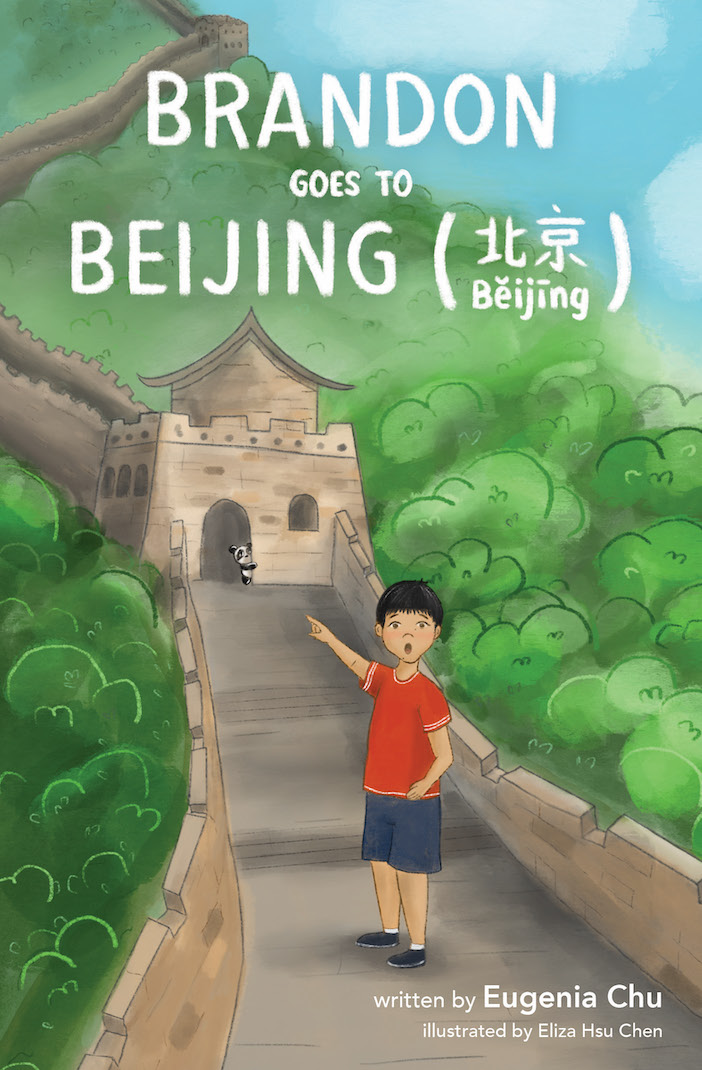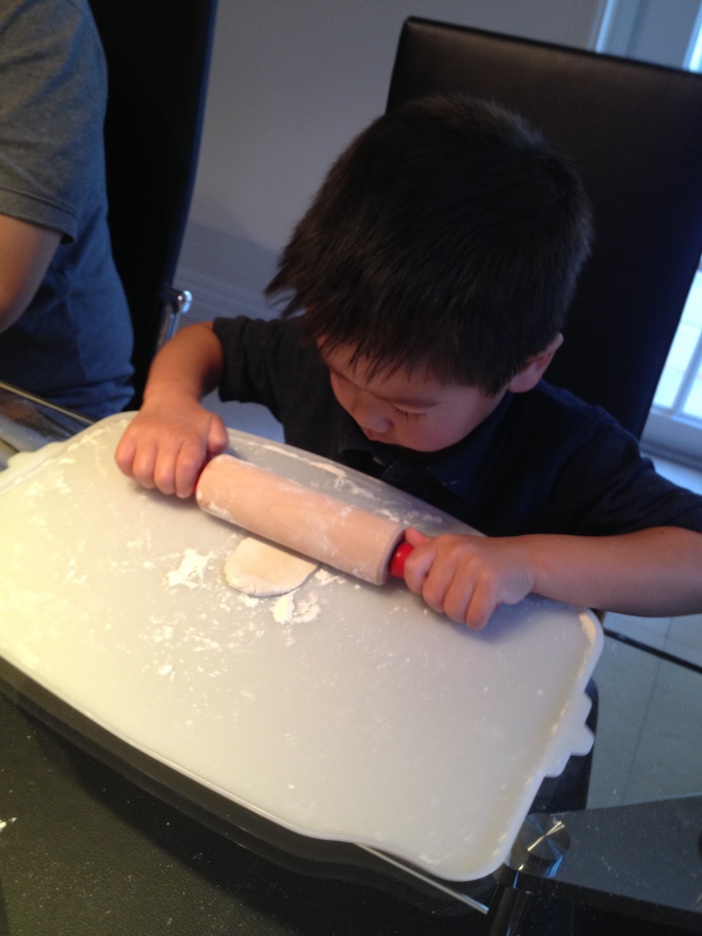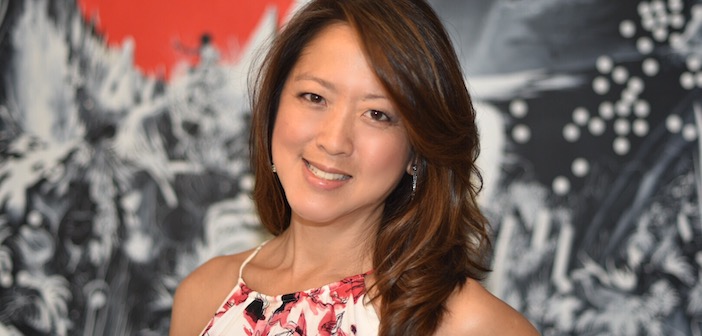Growing up I fell into a somewhat unique group. I’m not an ABC (American-born Chinese) since I was born in Harbin, China. But I’m not a Chinese study abroad either. I grew up speaking English and I learned Chinese about eight years ago after I moved to Beijing. I’m a first-generation immigrant who grew up without relatable role models in mainstream media that I could look up to.
My family moved to California in 1995, a time when ignorant racism was still pretty common even in elementary school playgrounds. My non-Asian classmates had very little understanding of my culture, and I remember being disinvited to parties in the 2nd grade because someone’s mom didn’t want Asians in their house.
What my family ate, spoke, and did was a mystery to our neighbors and somehow it made us strange and foreign to them. I remember reading books when I was kid and not being able to relate to a single character because I didn’t look like them and my family didn’t do the things they did. I also couldn’t relate to characters in Chinese children’s books because well, I couldn’t read Chinese and stuff like “after I do my homework I help grandpa wash his feet in a water basin” didn’t relate to me.

When I heard about the book Brandon Goes to Beijing, an English children’s book written by a Chinese American mom about a Chinese American boy getting in touch with his roots, I was ecstatic! I had to find out more about the book and this author who’s giving people like me a voice.

Thanks for taking the time to chat with us Eugenia!
Thanks so much for having me! I’m very excited and honored to be interviewing with beijingkids!
Tell us a bit about yourself. Where is your family from and where did you grow up?
Both of my parents are originally from China. I still have relatives in Beijing, Guangzhou, Hong Kong, and Taipei.
As for me, I was born and raised in the United States. I was born in New Jersey and moved around a lot as a kid, but grew up mostly outside of Boston, Massachusetts and then St. Petersburg, Florida. I have also lived and attended school in Pennsylvania, Connecticut, Washington D.C., Taipei (gap year between college and law school), and Shanghai (summer study abroad). I currently live in Miami with my husband and son, Brandon.
What books did you grow up reading as a child? Did you have a favorite?
I’ve always been a voracious reader and read everything I could get my hands on starting at a very young age. Growing up we always had books in the house and my mother took us to the library weekly; even more often during summers off from school. The earliest books I can remember reading are the Dr. Seuss books, and later I loved books by authors such as Roald Dahl and Judy Bloom. There are too many books and authors to list – it is impossible to identify just one favorite!
When did you start writing and why?
I started writing a few years after my son, Brandon, was born, but didn’t become serious about sharing my work until fairly recently. When Brandon was very little, I was always searching for children’s storybooks to read to him at bedtime which touched upon Chinese culture and which included some Chinese words and phrases to teach and/or reinforce his Chinese vocabulary, but had trouble finding them. Most of the books I found were either straight translations with Chinese on one side and English on the other, or were ABC/123 type instructional books with no storyline. Not what I was looking for. So, I started writing my own based on events in Brandon’s life and things he loved. At the time, I never considered publishing. I was just writing for fun for my son.

What inspired you to write your first book, Brandon Makes Jiǎo Zi (餃子)?
Whenever my parents come to visit, my mom and Brandon always make jiaozi! It’s their favorite thing to do together and has become a family tradition. Brandon always looks forward to it and it was one of the things he loved to talk about when he was little. A lot of the things that happen in the story actually occurred and still occur in real life – like Brandon getting flour all over the place when he is wrapping dumplings – although he is much less messy now than before!

What finally pushed you to publish?
Well, I was purely writing for my son and for the joy of writing. I wrote what I thought Brandon would enjoy reading. Then I sent Brandon Makes Jiǎo Zi (餃子), along with a couple other stories, to my sisters who both have kids around Brandon’s age and they loved them! My nephews and niece kept asking their moms to read the story to them over and over again! I was so surprised and thrilled! I can’t remember if it was one of my sisters or my husband who had first suggested I try to publish. At first, I just scoffed and thought, “Please, who would want to read my little story about Brandon!” But as time passed, and Brandon got older and I had more spare time, the thought stuck with me and lingered in the back of my mind. I figured since I was always looking for a book like this, and my sisters were also looking, maybe other parents would be interested and I could help fill a niche. So, I just went for it!
What does your son think of the books?
He thinks it’s cool that there are books about him! Although I must admit, he was more excited about the first one, which came out when he was younger. Now that he’s older – he’s a big 10-year-old! – he worries that other kids might tease him about some of the silly things I have his character doing and saying in the books. Fortunately, he has nice friends and good kids at his school and this hasn’t happened yet. In fact, just the opposite has happened. His friends and peers love the books! He always smiles and I can tell he feels proud when his friends tell him how awesome they think the books are!

What kind of impact do you think you’re making on your son (and other Chinese American kids) by creating children’s books with characters that they can physically and culturally relate to?
I think it is so important for children to be able to see themselves in books to help bolster self-esteem by gaining a sense of affirmation about themselves and their culture. I remember when I was little, the only characters in my books were of Caucasian children, and I remember wishing I had blond hair and blue eyes so I looked like the kids I read about. My sisters and I were the only minorities in our elementary school as well, so that didn’t help. Fortunately, my mom was active at school and in the PTA and made sure everyone – students, teachers, school administrators, and parents – knew us, so we weren’t teased or bullied at school. However, we still felt different because of the way we looked, and that hurt our confidence and self-respect. I believe it really would have helped if we had seen Asian characters in our books (or any media) so we wouldn’t have felt so alien. I’m hoping that by writing children’s books with Asian, specifically Chinese American, characters that my son and all other Chinese American children will see that they are just as important as, and not so different from, anyone else. I am also hoping that by seeing this regular happy character speaking both English and Chinese that it will encourage children to learn and speak another language, and not just because their parents are forcing them!
Furthermore, I also believe that it is crucial that all children are exposed to multicultural books, like mine, at a young age. I believe this will help diminish prejudicial thoughts about race and other differences. Children’s books with Asian American and other multicultural characters can be used to help open kinds’ minds and to stimulate an understanding of diversity. It is important to expose kids to those who might be different because people will often sympathize with those whom they are familiar. These kinds of books teach children empathy towards those who look different and promote cross-cultural friendship while dispelling stereotypes. They show kids that even though some people may look different from them, people (especially children) are basically the same – everyone likes to play, laugh, love, and eat yummy food! And nobody likes to be hurt or feel left out.
Moreover, multicultural children’s books let the reader see through the eyes of another. They increase cultural awareness and help children become more accepting of and respectful towards, people with different backgrounds. I think that if more multicultural children’s books were introduced to the market and read at home and in schools, that the gap between people from diverse cultural backgrounds would be reduced and future generations would be more unified. I truly hope my books will, in some small way, contribute to that end goal.
Have you found Asian culture more common in mainstream Western media compared to when you were a child?
Absolutely! When I was a child, I had never seen a book with an Asian protagonist or watched any TV shows or movies with Asian actors, that I can remember. Now, there are children’s books with Asian characters, popular TV programs like Fresh Off the Boat, and box office movies like Crazy Rich Asians – which I absolutely love! There’s even a popular cartoon for young kids that my son adored as a toddler called, Ni Hao, Kai-Lan! And there are new shows and movies coming out from Hollywood with Asian stories and Asian actors. It’s about time! I expect that there will much be more to come – at least I hope so!
What kind of feedback did you have from other Asian American parents?
I’ve had amazing feedback from other Asian American parents! Most of them have told me that they were so glad to finally find a book like this and some even bought several copies to give to family and friends! It’s always so thrilling to find parents like me!
In addition to direct conversations and messages, I’ve also received some incredible Amazon reviews from Asian American parents – here’s one example:
“Brandon Makes Jiǎo Zi (餃子) is one of those rare exceptions that incorporates both pinyin, characters . . . and a delightful story. The best part is that the pinyin/character elements are woven into the story, so you aren’t just either reading in Chinese or English but all together, like you would if both languages are used in the house. This was such a pleasant surprise that I bought a second copy of the book, so I could keep the first to read with my daughter and still give away the second to a little free library.”
Another Asian American mom wrote: “Oh! How I wish this was existent when my boys were small.” That’s exactly why I decided to share my books – to fill a need! Reviews like these are the main reason I will keep writing and publishing my stories!
Have you had any feedback on your books from non-Asian parents?
Believe it or not, most of the feedback I have received has been from non-Asian parents. Probably because there are very few Asians where we live and most of the people we have contact with are non-Asians. Also, most of the people who post reviews of my books are non-Asian. Luckily for me, so many people these days want their children to learn Chinese and/or to be exposed to a different culture.
Much of the feedback I have received are from parents who either are having, or want to have, their children learn Mandarin or they want to broaden their children’s views and experiences by exposing them to other cultures and languages. As one reviewer stated:
“With all the recent research that highlights the benefits of learning additional languages, I feel bilingual books like this one are a great resource. It is a quick read and can trigger a child’s interest in a new language and culture. After reading this book, kids are sure to retain a few Chinese words without realizing they are learning it. . . I’m quite surprised by the number of Chinese words and phrases I picked up after reading the book. At first, I had thought the Chinese version of words would distract from the story but they didn’t. By introducing a word and then repeating only the Chinese version, language learning is induced subtly. To those who would like an enhanced experience, there is also a pronunciation guide, a link to the author’s website with pronunciations and even an audiobook.”
I also have received feedback from parents of kids who are not learning Chinese but who still love the book(s).
As one parent stated: This book “incorporates some Mandarin, with context clues or English paraphrasing so that a non-speaker can understand. I like reading T books with some integrated foreign language. I know he is not learning Mandarin, but the exposure will lay a foundation for inter-cultural understanding and communication.”
Finally, both Asian and non-Asian parents and grandparents have told me they appreciate my book(s) not only for the language and cultural aspects but because they are also multigenerational stories which depict the special bond between a boy and his grandparents and the importance of family traditions. All kids can relate to Brandon’s silliness and love for family. And anyone can enjoy my books without knowing any Chinese – the Chinese in the books is just a bonus for those who are interested. As one reviewer put it:
“The Chinese language is embedded into the book moderately, it is not pushy but encouraging to learn a few Chinese words if you are interested.”
Tell us what inspired you to write Brandon Goes to Beijing? Is it based on an actual trip your family took?
Yes! We took a trip there a few years ago and Brandon’s cousins from California met us there, just like in the book! A lot of the events in the book are true things that we experienced and learned. Although there was no mysterious disappearing panda!

What did Brandon love the most from his Beijing trip? Will you be bringing him back again in the future?
Brandon’s favorite thing about the trip was spending time with family. His favorite attraction was the Mutianyu section of the Great Wall, especially riding down on the toboggan! He also loved the food! We definitely will be bringing him back to Beijing. As he grows and matures he will learn and appreciate new and different things each time he visits. I recommend that everyone visit Beijing at least once in their lives! There’s no place like it!
What are some other adventures that we can expect to reach from the Brandon series?
I plan to write more books about Brandon’s trips to different Asian countries, as well as other Chinese cities like Shanghai and Guangzhou. I’m also thinking of composing some stories about Chinese holidays and celebrations, too.
Where can we learn more about you and your books?
The best place is my website at: http://eugeniachu.com, or my Amazon page at: amazon.com/author/eugeniachu.
You can also follow me on social media at:
Facebook: https://www.facebook.com/eugeniachuauthor
Twitter: https://twitter.com/chuauthor
Instagram: https://www.instagram.com/eugeniachu8245/
Goodreads: https://www.goodreads.com/author/show/17045487.Eugenia_Chu
Trailer: https://www.youtube.com/watch?v=y9xZXNFFwHI
Photos: courtesy of Eugenia Chu




